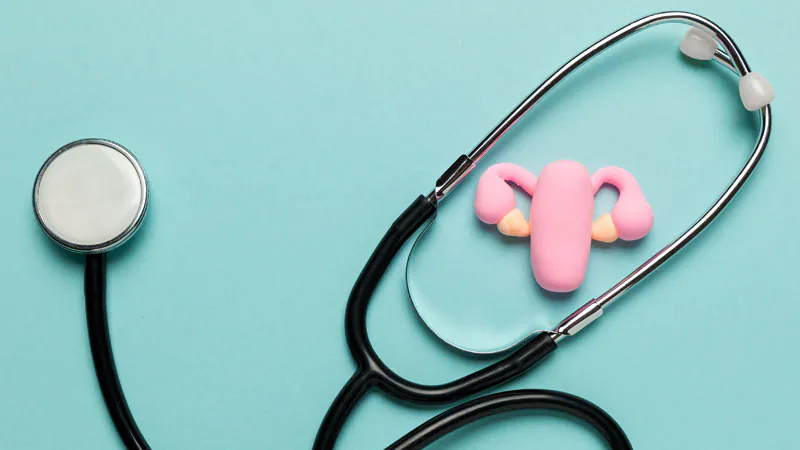Pregnancy is one of the most life-changing things that can happen to you. The first three months, which are known as the first trimester, are especially important. During this time, your body changes quickly, and your baby starts to grow. The trip can be fun, but it can also be too much. This first trimester guide is meant to help you get through the important early weeks of pregnancy with confidence by giving you useful tips, research-based information, and long-lasting ways to have a healthy start.
This resource will help you learn about common symptoms, important nutrition, and timeless tips for thriving during the first trimester, whether it’s your first time being pregnant or you’re adding to your family.
Getting to Know the First Trimester

The first trimester lasts from week 1 to week 12 of pregnancy. This time starts on the first day of your last period, even though fertilization usually happens about two weeks later. During this trimester, the placenta, major organs, and nervous system start to form. These important changes make it very important for you and your baby to stay healthy.
Important Changes in the First Trimester
- Weeks 1–4: The embryo starts to grow and implant. A lot of women might not even know they’re pregnant yet.
- Weeks 5–8: The heart starts to beat, and the arms, legs, and face start to form.
- Weeks 9–12: The liver, kidneys, and other major organs start to work. The fetus has features that can be seen by the end of week 12, and it is about the size of a lime.
This rapid growth is why it’s so important to take good care of yourself during the first trimester.
Common Symptoms in the First Trimester

Pregnancy symptoms can be very different from one woman to the next. Some women have a lot of them, while others have only a few. Knowing what’s normal can help you get ready and keep your expectations in check.
1. Sickness in the Morning
Nausea can happen at any time of day, even though the name says so. Changes in hormones, especially higher levels of human chorionic gonadotropin (hCG), are a big part of this. About 70–80% of women who are pregnant feel sick or throw up at some point.
- Eat small, frequent meals, drink a lot of water, and keep plain snacks like crackers on hand as a long-term plan.
- Healthcare providers often suggest ginger tea and vitamin B6 to help.
2. Tiredness
During the first few weeks of pregnancy, progesterone levels rise, which makes you sleepy. It’s normal to feel more tired than usual because your body is working harder to support the growth of the fetus.
- Timeless advice: Make sleep a priority, stick to a regular sleep schedule, and don’t be afraid to take a nap when you need one.
3. Changes in the Breasts
Tenderness, swelling, or darkening of the areolas may be some of the first signs that a woman is pregnant.
- Wear bras that give you support and use warm or cool compresses to feel better.
4. Going to the Bathroom a Lot
The bladder gets pushed against by the growing uterus, which makes people go to the bathroom more often.
- Stay hydrated, but cut back on caffeine, which can make the frequency worse.
5. Changes in Mood
Changes in hormones can change neurotransmitters, which can cause mood swings.
- How to deal: Talk openly with loved ones, use stress-relief techniques, and remember that these changes are normal.
Food in the First Trimester

One of the most important things for a healthy pregnancy is what you eat. The food choices you make in the first trimester will affect your baby’s growth and your own health.
Important Nutrients for the First Trimester
- Acid Folate
- Stops problems with the neural tube.
- You can find it in leafy greens, beans, fortified cereals, and prenatal vitamins.
- Iron
- Helps the body make more blood and stops anemia.
- Lean meats, spinach, and lentils are some of the foods that contain it. For better absorption, eat foods high in vitamin C with it.

- Vitamin D and Calcium
- Help the baby’s bones grow and keep the mother’s bones strong.
- Good sources include dairy products, fortified plant-based milks, and safe sun exposure.
- Protein
- Important for the growth of tissues.
- Lean meat, fish (low in mercury), beans, and nuts are all good sources of nutrients.
- Fatty Acids Omega-3
- Help the brain and eyes grow.
- Salmon, chia seeds, and walnuts all have it.
Foods to Cut Back On or Stay Away From
- Fish with a lot of mercury, like shark and swordfish.
- Dairy and juices that haven’t been pasteurized, which could have harmful bacteria in them.
- Don’t eat raw or undercooked meats and eggs to avoid getting sick from food.
- Too much caffeine (no more than 200 mg per day, or about one 12-ounce cup of coffee).
- There is no safe level of alcohol during pregnancy.
The evergreen nutrition principle: eat whole, minimally processed foods, drink enough water, and have balanced meals to make sure both mother and baby get the nutrients they need.
Medical Care in the First Trimester

The best way to have a smooth pregnancy is to get prenatal care early. Regular checkups let doctors keep an eye on the health of both the mother and the baby.
What to Expect at Your First Visit Before Giving Birth
- Blood or urine tests can confirm that you are pregnant.
- A look at your medical history and the health history of your family.
- A physical exam, which includes checking your weight and blood pressure.
- Blood tests for anemia, blood type, immunity to some diseases, and checking for infections.
- Talk about prenatal vitamins and advice on how to live a healthy life.
Routine Tests in the First Trimester
- Ultrasound (around weeks 8 to 12): Confirms the heartbeat and the age of the fetus.
- Genetic screening tests: may be available based on your age, family history, or personal choice.
Always go to all of your scheduled prenatal appointments. Regular monitoring makes it possible to find and deal with possible problems early on.
How to Deal with Problems in the First Trimester

The first three months can be hard on both your body and your mind. These ways of coping will last and can be used by people of all ages.
How to Handle Nausea and Vomiting
- Keep snacks by your bed to help you feel better in the morning.
- Stay away from foods that smell bad and are greasy.
- Try wearing acupressure wristbands that are made to help with motion sickness.
Fighting Tiredness
- Give other people tasks when you can.
- To get more energy, stay active with light activities like walking or prenatal yoga.
- Eat foods that are high in nutrients and keep your blood sugar stable.
Well-being of the Mind
- Writing in a journal can help you deal with your feelings.
- Join a group or online community for pregnant women to get support.
- To deal with stress, try mindfulness, deep breathing, or light meditation.
Working Out in the First Trimester

Staying active has many benefits, such as making you feel better, easing back pain, and helping you sleep better. Your doctor should tell you not to do any light to moderate activity.
Exercises that are Safe
- Going for a walk
- Swimming
- Yoga before birth
- Aerobics with little impact
Things to Stay Away From
- Sports with a lot of contact, like soccer and basketball.
- Things that have a high chance of falling, like skiing or horseback riding.
- Too much heat while working out.
Always a good idea: try to get at least 150 minutes of moderate-intensity exercise each week, broken up into sessions that are easy to handle.
Involvement of Partners and Family
A lot of the time, pregnancy is a journey that people go on together. Having your partner or family involved in your experience can make your support systems stronger.
- Get your loved ones to go to prenatal visits.
- Give them educational materials so they know what you’re going through.
- Talk about what you expect from each other when your body changes.
During the first trimester, building this support network helps both the mother and the baby throughout the pregnancy.
Getting Ready for Changes in Your Life

Pregnancy often means making changes to your daily life. Getting ready ahead of time helps lower stress later.
Job and Career
- Think about how the symptoms of pregnancy might affect your work.
- Tell your boss when you feel ready, especially if you need to make changes.
Safety at Home
- Don’t lift heavy things.
- Choose natural cleaning products instead of harsh ones to limit your exposure.
Getting Ready Financially
- Make a plan for how much money you’ll need for medical bills, maternity needs, and baby supplies.
- Look over the rules for maternity leave and child care options.
When to Call Your Doctor
Some signs are normal, but others need to see a doctor right away:
- A lot of vaginal bleeding or really bad cramps.
- Throwing up a lot and getting dehydrated.
- A high fever.
- Fainting or severe dizziness.
- Urination that hurts or signs of an infection.
Don’t be afraid to call your doctor if you have any questions. Quick care can stop problems from getting worse.
Why the First Trimester Matters in the Long Run

The things you do and the choices you make in the first three months of pregnancy set the stage for a healthy pregnancy. This stage affects your mental and emotional health as well as your physical health. You can get stronger for the months ahead by learning to listen to your body, feed it well, and make sleep a priority.
Checklist for the First Trimester
This is a list that will always be useful for every pregnancy:
- Begin taking prenatal vitamins that contain folic acid.
- Make an appointment for your first prenatal visit.
- Find out which foods are safe to eat while pregnant and which ones to stay away from.
- Keep track of your symptoms and let your doctor know if you have any worries.
- Start doing some light exercise.
- Change your habits (stop smoking and drinking).
- Make a network of friends, family, or people in your community who can help you.
- Make a budget and look over your company’s rules.
The End
The first three months may seem like a whirlwind of new things, but with the right information and help, they can also be empowering. This first trimester guide focuses on long-term strategies that are always useful, no matter when or where you are pregnant. These include eating foods rich in nutrients, getting regular medical care, getting emotional support, and making small changes to your lifestyle.
Keep in mind that each pregnancy is different. This guide can help you get started, but you should always talk to your doctor for personalized advice. You can make your journey into motherhood healthier and more confident by taking proactive steps in the first few weeks.
Read Also:













